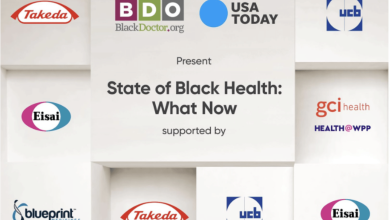Shocking Disparity in Mortality Rates Reveals 1.6 Million Black Lives Lost

Contact:
Elaine Myada
240-307-2442
LinkedIn Elaine Myada & Myada Communications
FOR IMMEDIATE RELEASE
September 13, 2024
Shocking Disparity in Mortality Rates Reveals 1.6 Million Black Lives Lost
African American Wellness Project Calls for Urgent Action to Address Systemic Health Inequities
(Oakland, CA) – AAWP, a leading health education communications company, is sounding the alarm on a serious health crisis that has resulted in the loss of 1.6 million Black lives due to disparities in mortality rates compared to white populations. This staggering statistic not only represents lost lives but highlights the systemic inequities in our society.t:
Statement of the Problem
“It is shocking that 1.6 million Black lives have been lost due to these disparities, the nation should be outraged but barely a whisper as result of this study,” said Dr. Michael Lenoir, President of AAWP. The higher mortality rate from 1999 to 2020 resulted in a cumulative loss of more than 80 million years of life compared with the white population, “This statistic represents the loss of countless hopes and dreams. The gap in life expectancy and health outcomes between Black and white populations reveals deep-rooted inequities.”
Reasons for the Disparity
- Healthcare Access and Quality
A major factor in this disparity is unequal access to healthcare. Many Black communities face barriers like lack of insurance, high medical costs, and fewer healthcare facilities. Even when access is available, Black individuals often encounter biases that result in subpar treatment. Research shows that Black patients are less likely to receive adequate pain management and more likely to be misdiagnosed than their white counterparts.
- Socioeconomic Factors
Socioeconomic status greatly influences health outcomes. Black Americans are disproportionately affected by poverty, unemployment, and limited educational opportunities, leading to higher rates of chronic conditions like diabetes, hypertension, and heart disease. Poor living conditions, such as inadequate housing and limited access to healthy food, worsen these health issues.
- Environmental Racism
Environmental factors also contribute to health disparities. Black communities are often located near industrial sites and pollution sources, resulting in higher rates of respiratory illnesses and other serious health conditions. Environmental racism illustrates how systemic inequities affect health outcomes.
Discussing the Solutions
“Addressing these disparities requires comprehensive policy reforms,” said Dr. Michael Lenoir , President of the AAWP. “Governments must ensure universal healthcare access and work to eliminate bias in the medical field. Promoting affordable housing, increasing funding for education, and creating job opportunities in underserved communities are essential. Environmental regulations must also protect vulnerable populations from harmful exposures.”
We advocate
- Policy Reforms
- Governments must ensure universal healthcare access and eliminate bias in the medical field. Promoting affordable housing, increasing funding for education, and creating job opportunities in underserved areas are vital steps. Environmental regulations must safeguard vulnerable populations from harmful exposures.
- Community Empowerment
Empowering Black communities to advocate for their health own health as individuals and families is vital. Community health programs like ours offering education and resources can make a significant difference. Supporting grassroots organizations and local leaders is essential for addressing health determinants and driving systemic change.
- Addressing Bias and Discrimination
Healthcare providers should receive training to recognize and counteract biases. Implementing standardized protocols ensures all patients receive equitable care. Increasing diversity in the medical field can help meet the unique health needs of Black communities.
- Research and Data Collection
Investing in research on health disparities is crucial. Collecting comprehensive data on health outcomes will inform targeted interventions. Research should also explore effective strategies to reduce health inequities.
Call to Action
“The loss of 1.6 million Black lives due to mortality rate disparities demands immediate action,” the nations should be outraged by this study. Blak higher mortality rate from 1999 to 2020 resulted in a cumulative loss of more than 80 million years of life compared with the white population, “By addressing root causes through policy reforms, community empowerment, unbiased healthcare, and focused research, we can begin to rectify this injustice. The time for action is now—our collective humanity depends on it. We must strive for a society where everyone has an equal chance at a healthy, fulfilling life. Let’s commit to meaningful changes today.”
For more information about the campaign or to get involved, please visit https://aawellnessproject.org/ or follow us on social media at:
YouTube: @AfricanAmericanWellnessProject
Twitter: @TheAAWP
Facebook/Instagram: @AfricanAmericanWellnessProject
LinkedIn: @AfricanAmericanWellnessProject
About the African American Wellness Project: The African American Wellness Project (AAWP) is a non-profit organization dedicated to empowering the African American community with culturally appropriate health information, resources, and advocacy. Our mission is to reduce health disparities and promote wellness through education, community engagement, and partnerships.
Reference:
JAMA: https://jamanetwork.com/journals/jama/article-abstract/2804822




